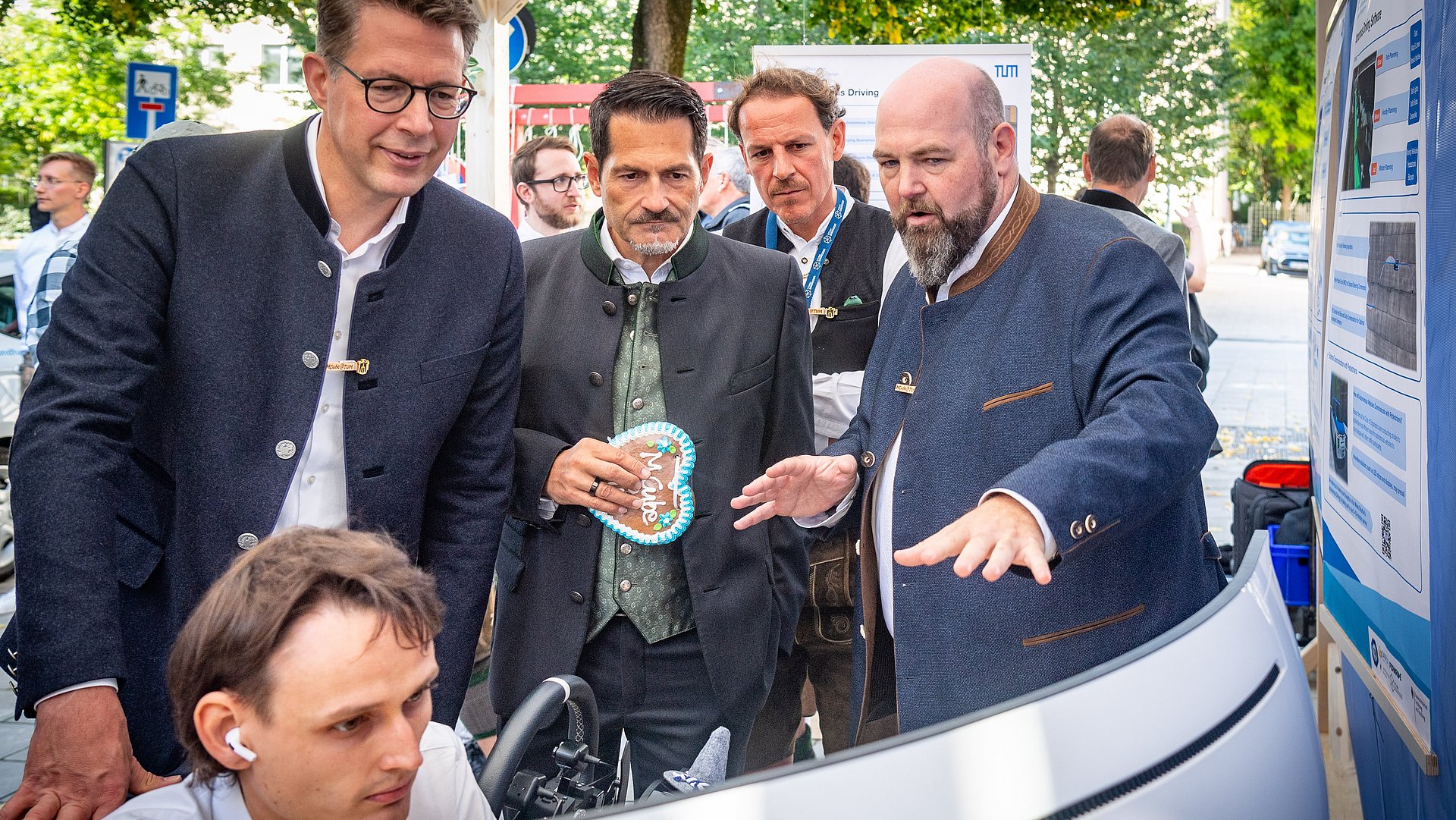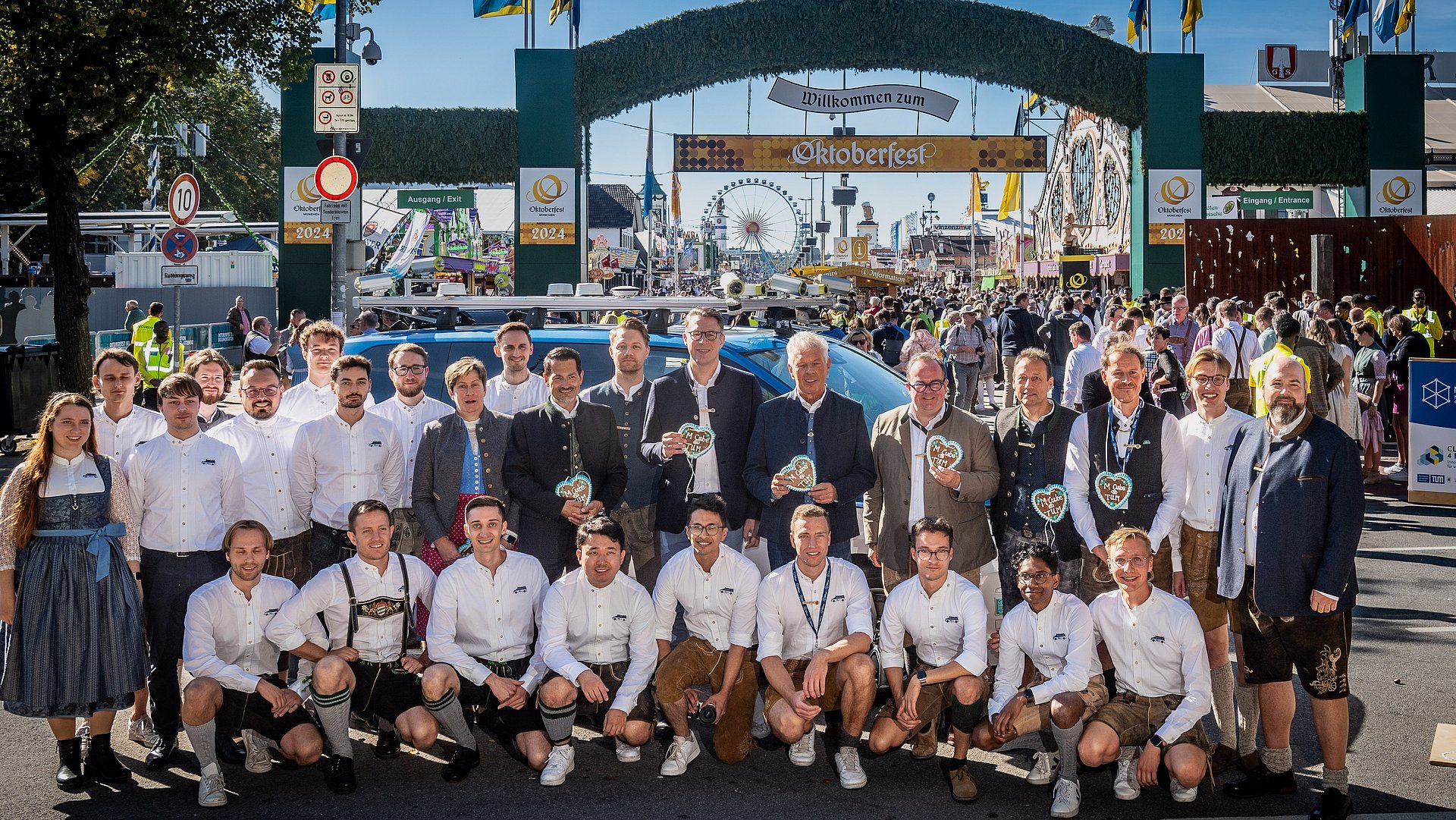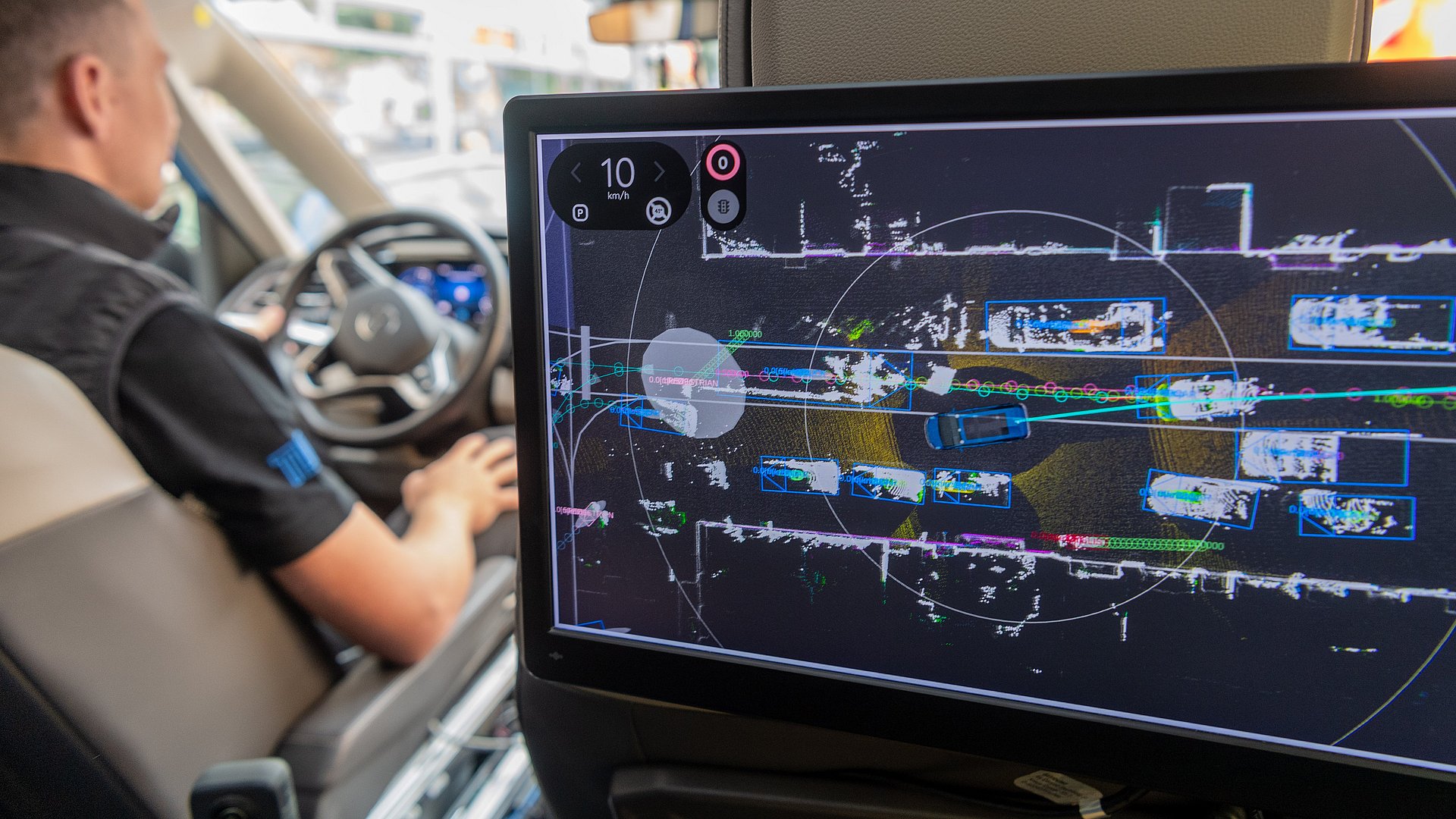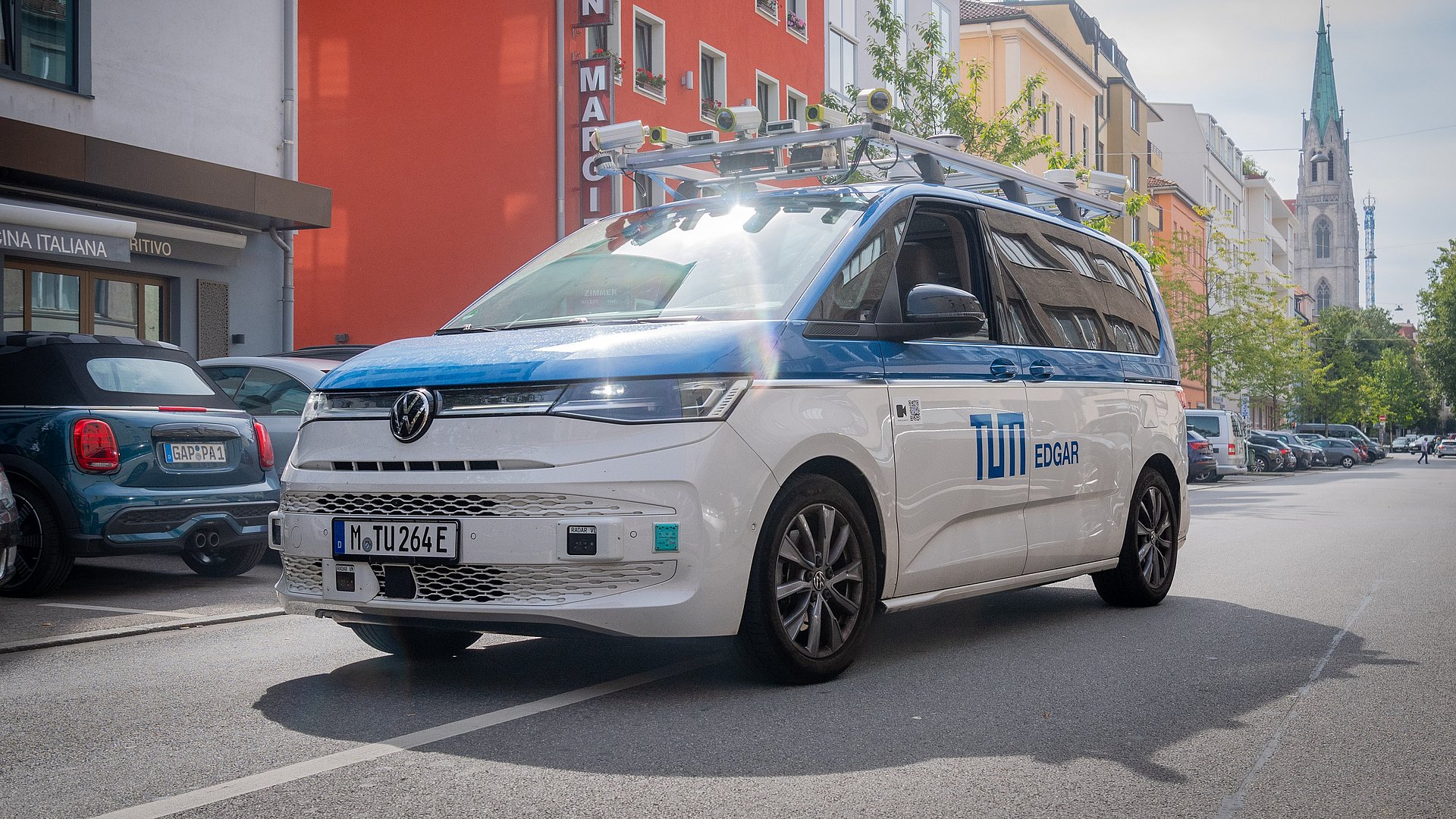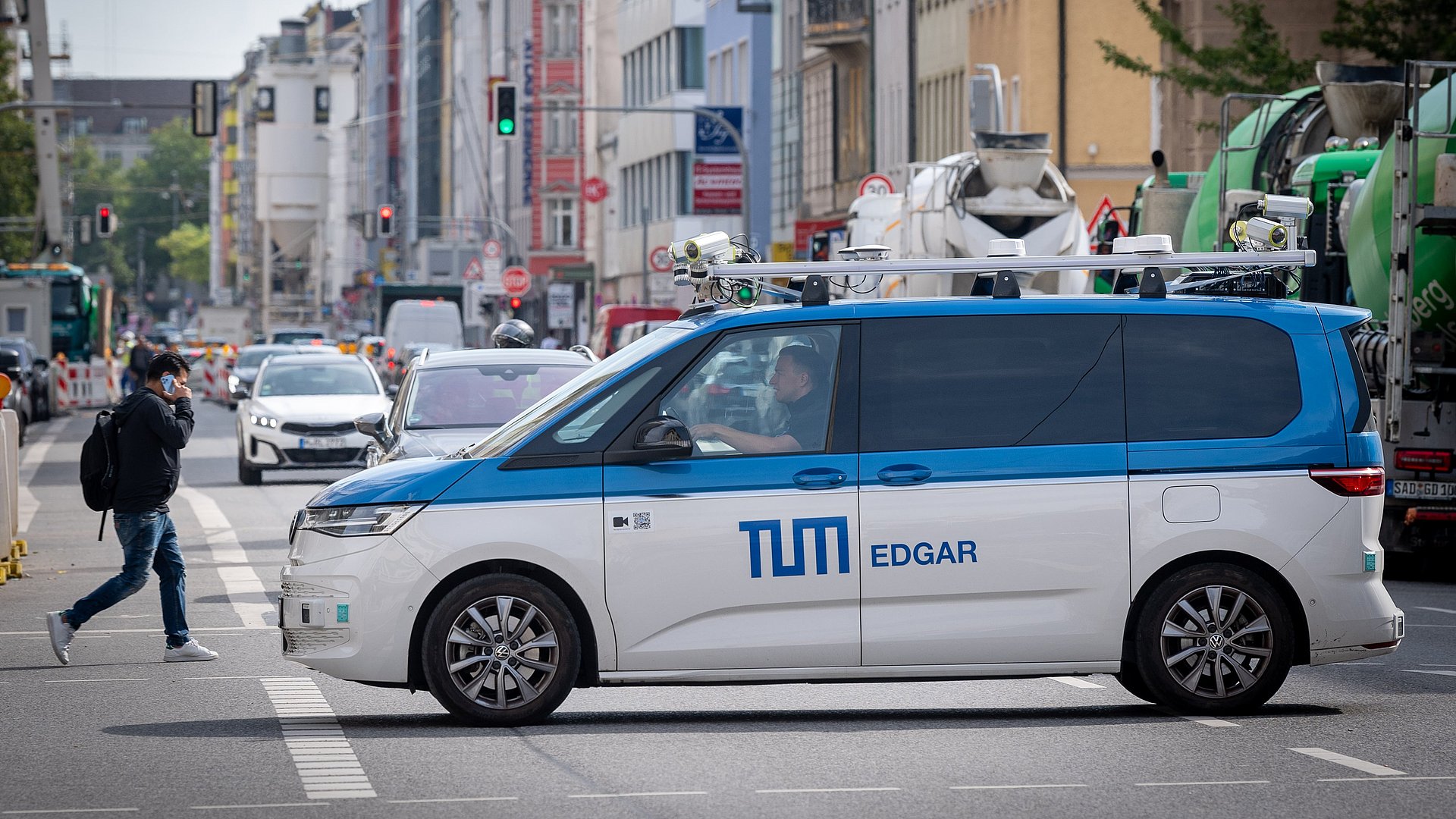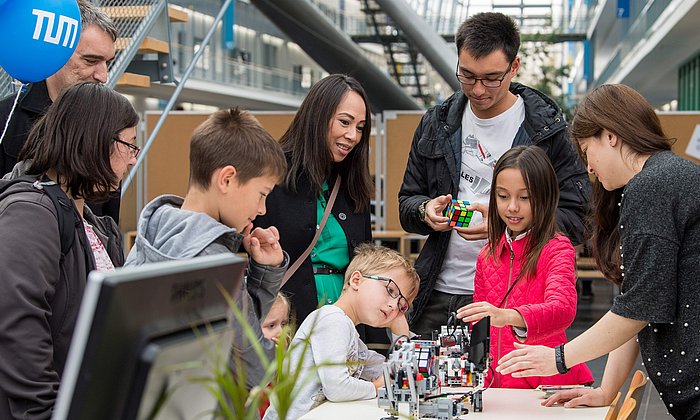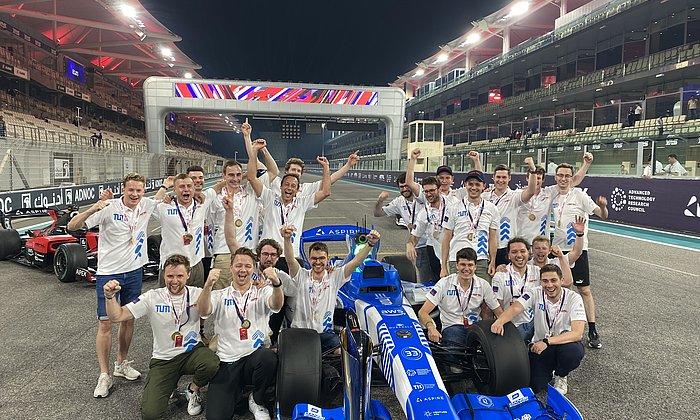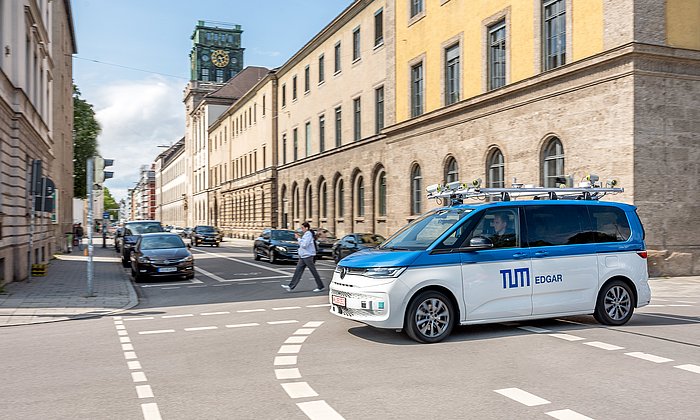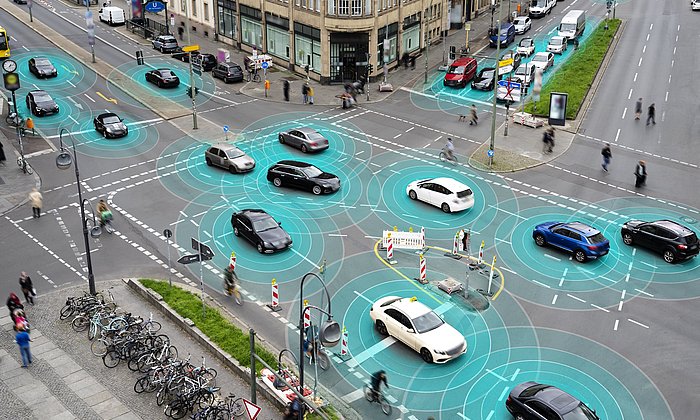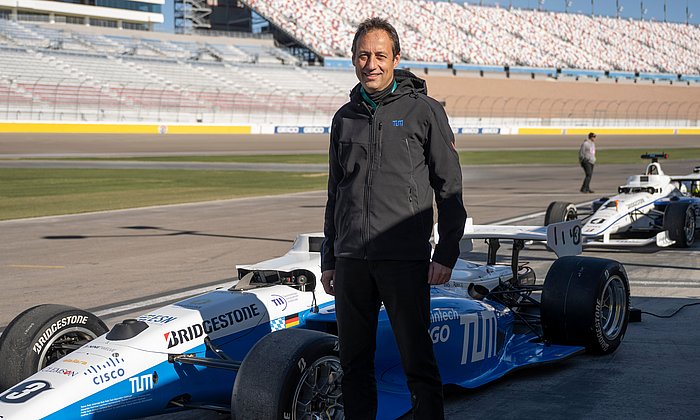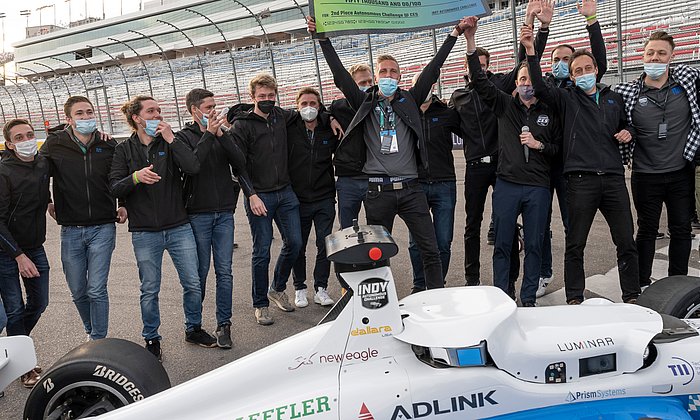Oktoberfest: TUM tests autonomous mobility in Oktoberfest traffic
AI-operated "MCube Wiesn Shuttle" in test operation
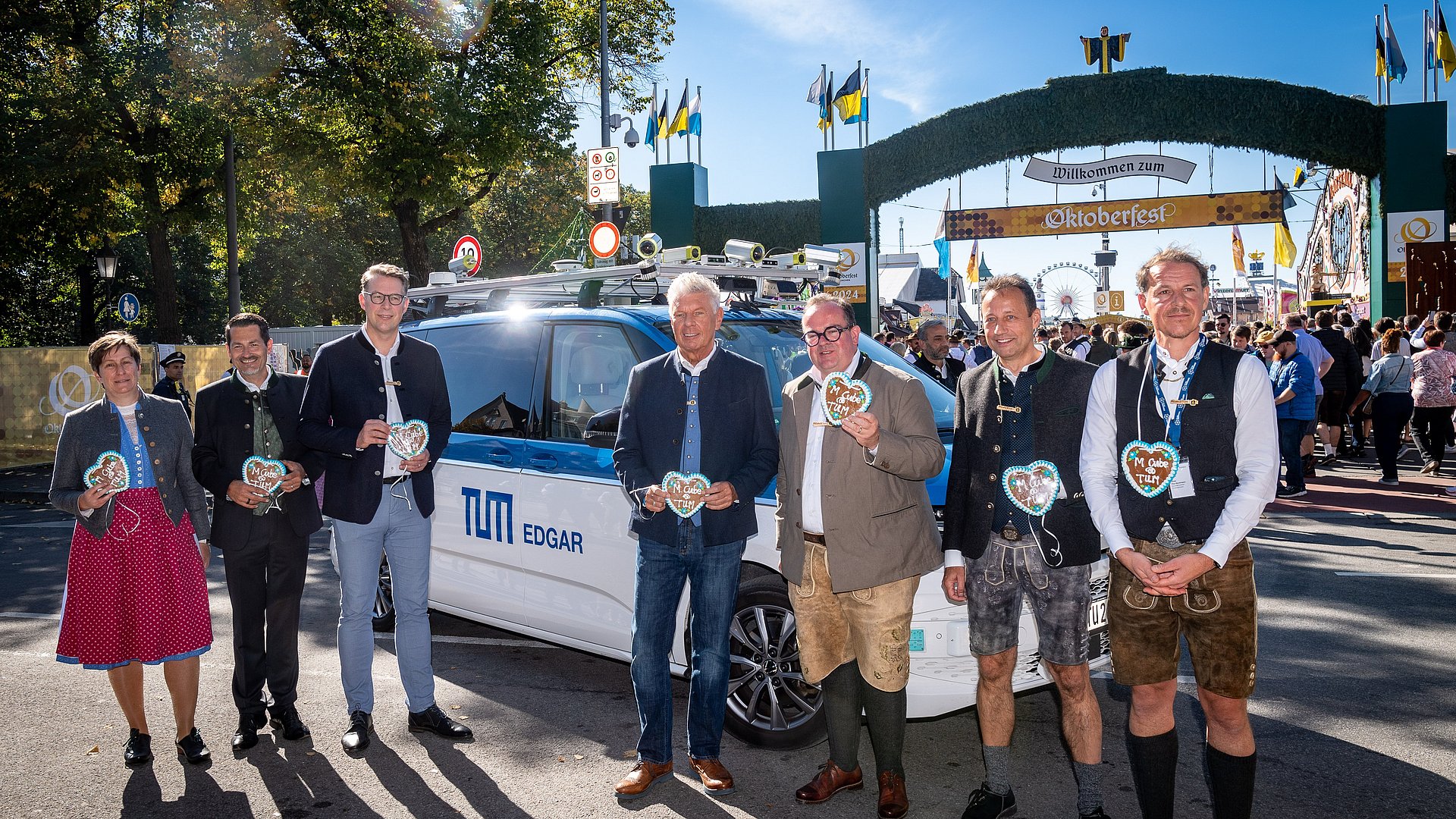
Heavy city traffic, unpredictable streams of pedestrians, bicycles, rickshaws and other road users - the traffic situation around the Theresienwiese is also very special during Oktoberfest. Equipped with state-of-the-art sensors and computer technology, the TUM test vehicle EDGAR is taking up the challenge. The team is confident that the artificial intelligence (AI) will master the task successfully, but a human can intervene at any time in an emergency. Autonomous driving is one of the most promising cornerstones of the mobility revolution.
Accident-free and safe driving
On 25 September, Bavaria's Minister of Science Markus Blume, Munich's Mayor Dieter Reiter, TUM President Prof. Thomas F. Hofmann and Head of the Oktoberfest, Clemens Baumgärtner, joined in as test passengers. The circuit took around 20 minutes through the area around the Oktoberfest site.
Prof. Thomas F. Hofmann, President of TUM, said: "The MCube Wiesn Shuttle here at the world's largest folk festival is a wonderful example of combining tradition and the future. It brings the spirit of pioneering and cutting-edge research to the people and once again makes Munich tangible as a European pioneer for future mobility."
Bavaria's Science Minister Markus Blume said: "A relaxed and driverless ride to the Wiesn in the white and blue party bus - TUM is making it possible with the MCube Cluster! The Wiesn shuttle is the next coup for the successful TUM vehicle technology team. Munich's traffic at Oktoberfest time is certainly a particularly challenging real-world laboratory for the mobility transition. But the EDGAR shuttle, packed with TUM technology - in true TUM style in white and blue - passes the extreme test in Munich's city traffic with flying colors. This year, it's not just 'O'zapft is' at the Oktoberfest, but also 'Ob'gfahrn is'. And we will continue to support the MCube cluster so that the technology can be put into real-life use quickly."
Munich's Mayor Dieter Reiter said: "What is taking place here on the Theresienwiese for two days is not just research in a real laboratory, but an exciting testing ground for the mobility of the future. Our EDGAR research vehicle is therefore much more than just a popular Oktoberfest attraction. The potential benefits are obvious: automated public transport could compensate for staff shortages, ensure greater safety and make the service more attractive for customers. I'm excited to see what the data reveals and wish everyone who wants to ride along lots of fun!"
Munich's mobility officer Georg Dunkel said: "Autonomous driving can help solve the mobility challenges of our time - such as the shortage of drivers in public transport. We have therefore been involved in various projects on the digitalization of transport and autonomous and connected driving for some time now - and are now very excited to see how well the technology can handle the challenging road traffic conditions around the Oktoberfest."
Clemens Baumgärtner, Munich's economic affairs officer and Head of the Oktoberfest, said: "High-tech and cutting-edge research come together at the Oktoberfest. Munich, with its cutting-edge research, is an international role model and a driver of innovation in Europe. People need to be able to experience and touch research and innovative spirit directly in order to accept new technology. I therefore invite all Munich residents to take a look at the TUM 'MCube Wiesn Shuttle' and take a ride."
On 26 September, all other Oktoberfest guests can also register for a ride on the autonomous shuttle.
Successful motor racing technology in use
Important fundamentals for the "Wiesn Shuttle" come from autonomous motor racing. Since 2022, the team led by Markus Lienkamp, Professor of Automotive Technology at TUM and Sector Head Mobility at the Munich Institute for Robotics and Machine Intelligence, has been taking part in various international racing series. "Without a human driver or remote control, using only the superior autonomous software, the team has already achieved numerous victories, most recently in April on the Formula 1 circuit in Abu Dhabi. Even without contact to a navigation satellites, for example in tunnels, the vehicle navigates safely," said Markus Lienkamp.
Open source approach: more security and knowledge transfer
A particular aspect of the project is the disclosure of the source code of the software used. This means that all security-relevant mechanisms can also be viewed and checked by external experts. Potential vulnerabilities can thus be identified by a huge global community and then immediately fixed by the project team. Commercial providers, on the other hand, usually keep their source codes strictly secret. Markus Lienkamp believes that the open source approach will not only be used in research in the future, but will also ensure that commercial autonomous vehicles can be driven safely and in a traceable manner.
MCube - The Munich cluster for the future of mobility in metropolitan regions
The "Wiesn Shuttle" is a flagship project of the future cluster "MCube - The Munich Cluster for the Future of Mobility in Metropolitan Regions", which has been funded by the German government for over nine years. MCube, managed by the Technical University of Munich, develops scalable mobility solutions with model character for metropolitan regions in Germany and worldwide. The 50 MCube partners are committed to sustainable, efficient and socially just mobility with the aim of realizing leap innovations with great economic impact and high solution potential for global challenges. The MCube is one of 14 future clusters funded by the Federal Ministry of Education and Research (BMBF).
-
Photos available for download: go.tum.de/838972
- The Public Day will take place on Thursday, September 26, from 8:30 a.m. to 4 p.m. at St. Pauls Platz 9.
- The MCube Wiesn Shuttle is led by TUM in cooperation with the following partners:
- TÜV Süd AG
- City of Munich
- FERNRIDE GmbH
- SANEON GmbH
Technical University of Munich
Corporate Communications Center
- Moritz Müller
- presse@tum.de
- Teamwebsite
Contacts to this article:
Prof. Dr. Markus Lienkamp
Technical University of Munich (TUM)
Institute of Automotive Technology / Munich lnstitute of Robotics and Machine lntelligence (MIRMI)
Tel. + 49 89 289 15353
lienkamp@tum.de
